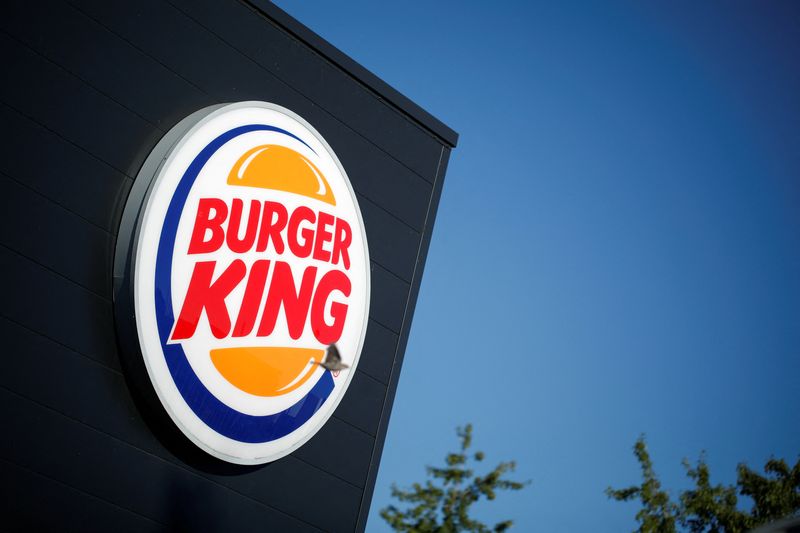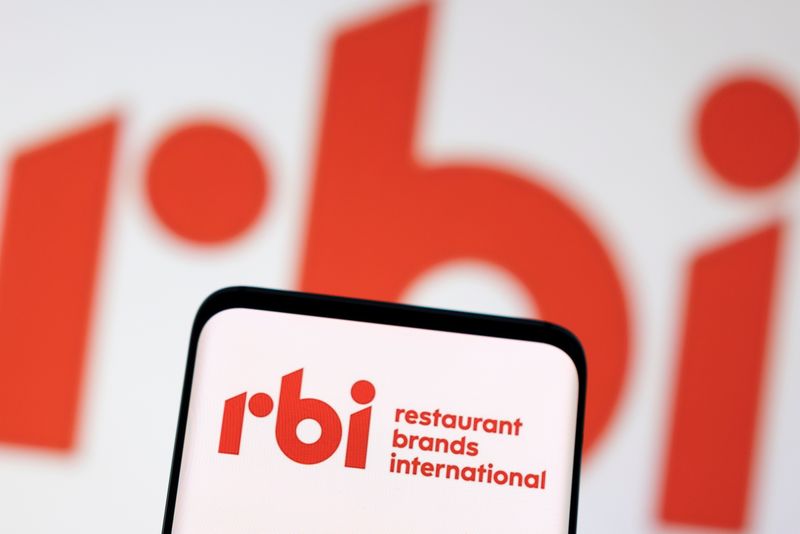By Deborah Mary Sophia
(Reuters) -Restaurant Brands International missed market estimates for quarterly sales on Friday as lingering inflation pinched spending at its Burger King chain, eclipsing higher demand for Tim Hortons coffees and Popeyes chicken wings.
Shares of the Canada-based company fell 4%, as executives said Burger King would increase advertising and store investments under an ongoing turnaround plan, setting it up for higher costs in the current quarter.
The U.S. restaurant industry has come under pressure in recent months as weaker household budgets force some customers to swap restaurant food for cheaper, home-cooked meals.
The dour sales at Restaurant Brands (NYSE:QSR) contrast a strong third-quarter performance from larger rival McDonald's (NYSE:MCD), whose menu upgrades and promotions helped the global chain beat inflation pressures and grab market share in the fast-food space.
"The quarter was a mixed bag... maybe expectations were a little bit too high (for Burger King)... but they have to figure out a way to compete with the McDonald's of the world," said Sante Faustini III, director of product intelligence at M Science.
Burger King's total same-store sales growth of 7.2% missed analysts' estimates of 8.71%, LSEG data showed.
Still, items like the $2.99 snack wraps and the $5 "Your Way" meal are helping increase visits to Burger King, CEO Josh Kobza told Reuters in an interview.
Footfall at U.S. locations was flat in the quarter, improving from several quarters of traffic declines.
Burger King has "made a lot of progress ... but there's still a very long way from where we are to where we want to be. There still are a lot of restaurants that aren't operated at the standards we would like," Kobza said.
Meanwhile, Tim Hortons attracted more customers with its new cold drinks and breakfast sandwiches, driving a better-than-expected 6.8% comparable sales growth.

Total revenue at Restaurant Brands rose to $1.84 billion, but missed estimates of $1.87 billion.
Its adjusted per-share earnings of 90 cents beat expectations of 86 cents, thanks to a let-up in some commodity costs.
